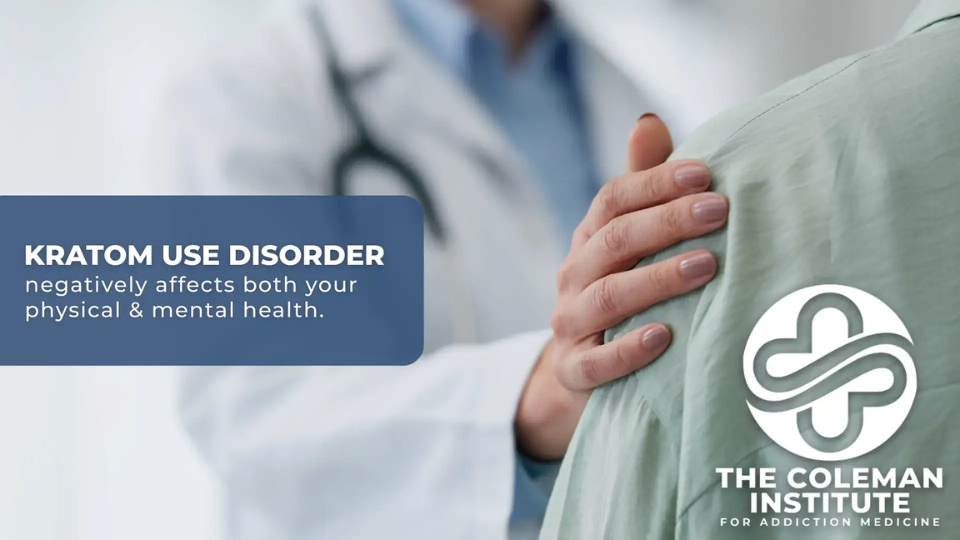What Is Pseudoindoxyl (Pseudo)?
Mitragynine Pseudoindoxyl (also known as Pseudo or MP) is one of the most powerful compounds linked to kratom and its opioid-like effects. It is created when 7-hydroxymitragynine (7-OH), one of kratom’s strongest active ingredients, is rearranged into an even more potent form.Certain kratom products are now marketed as containing concentrated 7-OH and Pseudo, usually in tablet or liquid forms. Kratom and its enhanced versions act much more like traditional opioids. People who use them often find themselves developing dependence quickly and experiencing withdrawal symptoms as severe as quitting fentanyl or other opioids.
For individuals using Pseudo products, and for loved ones watching their struggles unfold, understanding what makes these products so dangerous is the first step toward finding and getting help.
How Pseudo Is Different From Regular Kratom
Standard kratom leaves mostly contain mitragynine, the plant’s primary compound. Mitragynine can create dependence over time and can lead to Kratom Use Disorder (KUD).Pseudo and other 7-OH enriched products are in a different category than typical kratom, especially when the two are mixed. 7-OH, 7-Hydroxy, or 7-Hydroxymitragynine, is an even more potent opioid-like compound that is present in small amounts naturally but often concentrated in extracts. Pseudo, MP, or Mitragynine Pseudoindoxyl is a rearrangement product of 7-OH that is formulated to be even stronger, now appearing in some marketed kratom products in stores as well as online.
These factors make Pseudo potentially even more addictive and more difficult to stop using, especially alongside 7-OH. Many people don’t even realize they’ve moved from standard kratom into using synthetic products that are even more potent.
What Pseudo Withdrawal Feels Like
Because Pseudo acts like a strong opioid, withdrawal symptoms often mirror opioid withdrawal.Physical symptoms:
- Severe muscle & bone pain
- Nausea, vomiting, & diarrhea
- Restlessness & fatigue
- Sweating, chills, & goosebumps
- Increased heart rate or blood pressure
- Overwhelming cravings
- Anxiety or panic attacks
- Depression & hopelessness
- Irritability & agitation
- Difficulty sleeping
Why Quitting Alone Is Dangerous
A common myth is that kratom is easy to quit. It’s not, especially when you’re using an enhanced version. Because of how it taps into the same receptors in the brain as opioids do, stopping suddenly without medical help often leads to:- Intense withdrawal symptoms
- Higher risk of relapse
- Increased overdose risk
Outpatient Detox for Pseudo Withdrawal
The Coleman Institute for Addiction Medicine has been saving lives for over 25 years, and we’ve been helping people detox from kratom since 2018. Our Kratom Detox program safely manages withdrawal while allowing patients to return home each day. This makes recovery more accessible for people who can’t put their lives completely on hold or afford to stay in a 30-day residential rehab.Our Kratom Detox Approach:
- Short Treatment Timeline - Most detoxes are completed in just a few days instead of having to face withdrawals for weeks.
- Comfort-Focused Care - We use non addictive medications to help reduce withdrawal symptoms and cravings.
- No Hospitalization Needed - Our process is safe and outpatient-based with no inpatient stay required.
- Relapse Prevention - Many patients opt for Naltrexone Therapy to reduce cravings and protect against relapse.

The Coleman Institute is Here to Help
If you or a loved one is abusing kratom products, you may notice mood swings, anxiety, or repeated failed attempts to quit. It can be confusing and painful (mentally and physically), especially as these products are sold legally and often marketed as ‘safe’.But Mitragynine Pseudoindoxyl is not harmless. It acts like an opioid, and withdrawal can be extremely challenging. The good news is that with professional help, recovery is possible. Many people who once felt trapped by kratom addiction have broken free and started a new chapter in life.
Find Help for Pseudo Withdrawal
At our Virginia headquarters, The Coleman Institute accepts Anthem Blue Cross Blue Shield and Sentara Health Plans, along with self-pay and financing options. We also provide treatment in Colorado, Florida, Georgia, and California.Call us today at 540-253-1029 or schedule a callback to learn more about outpatient detox for Pseudo withdrawal. Whether you’re struggling yourself or supporting someone you love, you don’t have to face addiction alone.


